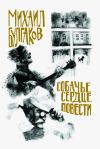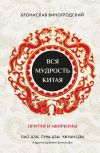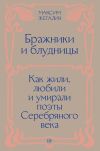Текст книги "The Great Boer War"

Автор книги: Arthur Conan Doyle
Жанр: Зарубежная публицистика, Публицистика
Возрастные ограничения: +12
сообщить о неприемлемом содержимом
Текущая страница: 3 (всего у книги 43 страниц) [доступный отрывок для чтения: 11 страниц]
What will become of us or our children on that day when we may find ourselves in a minority of one in twenty without a single friend among the other nineteen, among those who will then tell us that they wished to be brothers, but that we by our own act have made them strangers to the republic?' Such reasonable and liberal sentiments were combated by members who asserted that the signatures could not belong to law-abiding citizens, since they were actually agitating against the law of the franchise, and others whose intolerance was expressed by the defiance of the member already quoted, who challenged the Uitlanders to come out and fight. The champions of exclusiveness and racial hatred won the day. The memorial was rejected by sixteen votes to eight, and the franchise law was, on the initiative of the President, actually made more stringent than ever, being framed in such a way that during the fourteen years of probation the applicant should give up his previous nationality, so that for that period he would really belong to no country at all. No hopes were held out that any possible attitude upon the part of the Uitlanders would soften the determination of the President and his burghers. One who remonstrated was led outside the State buildings by the President, who pointed up at the national flag. 'You see that flag?' said he. 'If I grant the franchise, I may as well pull it down.' His animosity against the immigrants was bitter. 'Burghers, friends, thieves, murderers, newcomers, and others,' is the conciliatory opening of one of his public addresses. Though Johannesburg is only thirty-two miles from Pretoria, and though the State of which he was the head depended for its revenue upon the gold fields, he paid it only three visits in nine years.
This settled animosity was deplorable, but not unnatural. A man imbued with the idea of a chosen people, and unread in any book save the one which cultivates this very idea, could not be expected to have learned the historical lessons of the advantages which a State reaps from a liberal policy. To him it was as if the Ammonites and Moabites had demanded admission into the twelve tribes. He mistook an agitation against the exclusive policy of the State for one against the existence of the State itself. A wide franchise would have made his republic firm-based and permanent. It was a small minority of the Uitlanders who had any desire to come into the British system. They were a cosmopolitan crowd, only united by the bond of a common injustice. But when every other method had failed, and their petition for the rights of freemen had been flung back at them, it was natural that their eyes should turn to that flag which waved to the north, the west, and the south of them – the flag which means purity of government with equal rights and equal duties for all men. Constitutional agitation was laid aside, arms were smuggled in, and everything prepared for an organised rising.
The events which followed at the beginning of 1896 have been so thrashed out that there is, perhaps, nothing left to tell – except the truth. So far as the Uitlanders themselves are concerned, their action was most natural and justifiable, and they have no reason to exculpate themselves for rising against such oppression as no men of our race have ever been submitted to. Had they trusted only to themselves and the justice of their cause, their moral and even their material position would have been infinitely stronger. But unfortunately there were forces behind them which were more questionable, the nature and extent of which have never yet, in spite of two commissions of investigation, been properly revealed. That there should have been any attempt at misleading inquiry, or suppressing documents in order to shelter individuals, is deplorable, for the impression left – I believe an entirely false one – must be that the British Government connived at an expedition which was as immoral as it was disastrous.
It had been arranged that the town was to rise upon a certain night, that Pretoria should be attacked, the fort seized, and the rifles and ammunition used to arm the Uitlanders. It was a feasible device, though it must seem to us, who have had such an experience of the military virtues of the burghers, a very desperate one. But it is conceivable that the rebels might have held Johannesburg until the universal sympathy which their cause excited throughout South Africa would have caused Great Britain to intervene. Unfortunately they had complicated matters by asking for outside help. Mr. Cecil Rhodes was Premier of the Cape, a man of immense energy, and one who had rendered great services to the empire. The motives of his action are obscure – certainly, we may say that they were not sordid, for he has always been a man whose thoughts were large and whose habits were simple. But whatever they may have been – whether an ill-regulated desire to consolidate South Africa under British rule, or a burning sympathy with the Uitlanders in their fight against injustice – it is certain that he allowed his lieutenant, Dr. Jameson, to assemble the mounted police of the Chartered Company, of which Rhodes was founder and director, for the purpose of co-operating with the rebels at Johannesburg. Moreover, when the revolt at Johannesburg was postponed, on account of a disagreement as to which flag they were to rise under, it appears that Jameson (with or without the orders of Rhodes) forced the hand of the conspirators by invading the country with a force absurdly inadequate to the work which he had taken in hand. Five hundred policemen and three field guns made up the forlorn hope who started from near Mafeking and crossed the Transvaal border upon December 29th, 1895. On January 2nd they were surrounded by the Boers amid the broken country near Dornkop, and after losing many of their number killed and wounded, without food and with spent horses, they were compelled to lay down their arms. Six burghers lost their lives in the skirmish.
The Uitlanders have been severely criticised for not having sent out a force to help Jameson in his difficulties, but it is impossible to see how they could have acted in any other manner. They had done all they could to prevent Jameson coming to their relief, and now it was rather unreasonable to suppose that they should relieve their reliever. Indeed, they had an entirely exaggerated idea of the strength of the force which he was bringing, and received the news of his capture with incredulity. When it became confirmed they rose, but in a halfhearted fashion which was not due to want of courage, but to the difficulties of their position. On the one hand, the British Government disowned Jameson entirely, and did all it could to discourage the rising; on the other, the President had the raiders in his keeping at Pretoria, and let it be understood that their fate depended upon the behaviour of the Uitlanders. They were led to believe that Jameson would be shot unless they laid down their arms, though, as a matter of fact, Jameson and his people had surrendered upon a promise of quarter. So skillfully did Kruger use his hostages that he succeeded, with the help of the British Commissioner, in getting the thousands of excited Johannesburgers to lay down their arms without bloodshed. Completely out-manoeuvred by the astute old President, the leaders of the reform movement used all their influence in the direction of peace, thinking that a general amnesty would follow; but the moment that they and their people were helpless the detectives and armed burghers occupied the town, and sixty of their number were hurried to Pretoria Gaol.
To the raiders themselves the President behaved with great generosity. Perhaps he could not find it in his heart to be harsh to the men who had managed to put him in the right and won for him the sympathy of the world. His own illiberal and oppressive treatment of the newcomers was forgotten in the face of this illegal inroad of filibusters. The true issues were so obscured by this intrusion that it has taken years to clear them, and perhaps they will never be wholly cleared. It was forgotten that it was the bad government of the country which was the real cause of the unfortunate raid. From then onwards the government might grow worse and worse, but it was always possible to point to the raid as justifying everything. Were the Uitlanders to have the franchise? How could they expect it after the raid? Would Britain object to the enormous importation of arms and obvious preparations for war? They were only precautions against a second raid. For years the raid stood in the way, not only of all progress, but of all remonstrance. Through an action over which they had no control, and which they had done their best to prevent, the British Government was left with a bad case and a weakened moral authority.
The raiders were sent home, where the rank and file were very properly released, and the chief officers were condemned to terms of imprisonment which certainly did not err upon the side of severity. Cecil Rhodes was left unpunished, he retained his place in the Privy Council, and his Chartered Company continued to have a corporate existence. This was illogical and inconclusive. As Kruger said, 'It is not the dog which should be beaten, but the man who set him on to me.' Public opinion – in spite of, or on account of, a crowd of witnesses – was ill informed upon the exact bearings of the question, and it was obvious that as Dutch sentiment at the Cape appeared already to be thoroughly hostile to us, it would be dangerous to alienate the British Africanders also by making a martyr of their favourite leader. But whatever arguments may be founded upon expediency, it is clear that the Boers bitterly resented, and with justice, the immunity of Rhodes.
In the meantime, both President Kruger and his burghers had shown a greater severity to the political prisoners from Johannesburg than to the armed followers of Jameson. The nationality of these prisoners is interesting and suggestive. There were twenty-three Englishmen, sixteen South Africans, nine Scotchmen, six Americans, two Welshmen, one Irishman, one Australian, one Hollander, one Bavarian, one Canadian, one Swiss, and one Turk. The prisoners were arrested in January, but the trial did not take place until the end of April. All were found guilty of high treason. Mr. Lionel Phillips, Colonel Rhodes (brother of Mr. Cecil Rhodes), George Farrar, and Mr. Hammond, the American engineer, were condemned to death, a sentence which was afterwards commuted to the payment of an enormous fine. The other prisoners were condemned to two years' imprisonment, with a fine of 2000 pounds each. The imprisonment was of the most arduous and trying sort, and was embittered by the harshness of the gaoler, Du Plessis. One of the unfortunate men cut his throat, and several fell seriously ill, the diet and the sanitary conditions being equally unhealthy. At last at the end of May all the prisoners but six were released. Four of the six soon followed, two stalwarts, Sampson and Davies, refusing to sign any petition and remaining in prison until they were set free in 1897. Altogether the Transvaal Government received in fines from the reform prisoners the enormous sum of 212,000 pounds. A certain comic relief was immediately afterwards given to so grave an episode by the presentation of a bill to Great Britain for 1,677, 938 pounds 3 shillings and 3 pence – the greater part of which was under the heading of moral and intellectual damage.
The raid was past and the reform movement was past, but the causes which produced them both remained. It is hardly conceivable that a statesman who loved his country would have refrained from making some effort to remove a state of things which had already caused such grave dangers, and which must obviously become more serious with every year that passed. But Paul Kruger had hardened his heart, and was not to be moved. The grievances of the Uitlanders became heavier than ever. The one power in the land to which they had been able to appeal for some sort of redress amid their grievances was the law courts. Now it was decreed that the courts should be dependent on the Volksraad. The Chief Justice protested against such a degradation of his high office, and he was dismissed in consequence without a pension. The judge who had condemned the reformers was chosen to fill the vacancy, and the protection of a fixed law was withdrawn from the Uitlanders.
A commission appointed by the State was sent to examine into the condition of the mining industry and the grievances from which the newcomers suffered. The chairman was Mr. Schalk Burger, one of the most liberal of the Boers, and the proceedings were thorough and impartial. The result was a report which amply vindicated the reformers, and suggested remedies which would have gone a long way towards satisfying the Uitlanders. With such enlightened legislation their motives for seeking the franchise would have been less pressing. But the President and his Raad would have none of the recommendations of the commission. The rugged old autocrat declared that Schalk Burger was a traitor to his country for having signed such a document, and a new reactionary committee was chosen to report upon the report. Words and papers were the only outcome of the affair. No amelioration came to the newcomers. But at least they had again put their case publicly upon record, and it had been endorsed by the most respected of the burghers. Gradually in the press of the English-speaking countries the raid was ceasing to obscure the issue. More and more clearly it was coming out that no permanent settlement was possible where the majority of the population was oppressed by the minority. They had tried peaceful means and failed. They had tried warlike means and failed. What was there left for them to do? Their own country, the paramount power of South Africa, had never helped them. Perhaps if it were directly appealed to it might do so. It could not, if only for the sake of its own imperial prestige, leave its children for ever in a state of subjection. The Uitlanders determined upon a petition to the Queen, and in doing so they brought their grievances out of the limits of a local controversy into the broader field of international politics. Great Britain must either protect them or acknowledge that their protection was beyond her power. A direct petition to the Queen praying for protection was signed in April 1899 by twenty-one thousand Uitlanders. From that time events moved inevitably towards the one end. Sometimes the surface was troubled and sometimes smooth, but the stream always ran swiftly and the roar of the fall sounded ever louder in the ears.
Chapter 3. The negotiations
The British Government and the British people do not desire any direct authority in South Africa. Their one supreme interest is that the various States there should live in concord and prosperity, and that there should be no need for the presence of a British redcoat within the whole great peninsula. Our foreign critics, with their misapprehension of the British colonial system, can never realise that whether the four-coloured flag of the Transvaal or the Union Jack of a self-governing colony waved over the gold mines would not make the difference of one shilling to the revenue of Great Britain. The Transvaal as a British province would have its own legislature, its own revenue, its own expenditure, and its own tariff against the mother country, as well as against the rest of the world, and England be none the richer for the change. This is so obvious to a Briton that he has ceased to insist upon it, and it is for that reason perhaps that it is so universally misunderstood abroad. On the other hand, while she is no gainer by the change, most of the expense of it in blood and in money falls upon the home country. On the face of it, therefore, Great Britain had every reason to avoid so formidable a task as the conquest of the South African Republic. At the best she had nothing to gain, and at the worst she had an immense deal to lose. There was no room for ambition or aggression. It was a case of shirking or fulfilling a most arduous duty.
There could be no question of a plot for the annexation of the Transvaal. In a free country the Government cannot move in advance of public opinion, and public opinion is influenced by and reflected in the newspapers. One may examine the files of the press during all the months of negotiations and never find one reputable opinion in favour of such a course, nor did one in society ever meet an advocate of such a measure. But a great wrong was being done, and all that was asked was the minimum change which would set it right, and restore equality between the white races in Africa. 'Let Kruger only be liberal in the extension of the franchise,' said the paper which is most representative of the sanest British opinion, 'and he will find that the power of the republic will become not weaker, but infinitely more secure. Let him once give the majority of the resident males of full age the full vote, and he will have given the republic a stability and power which nothing else can. If he rejects all pleas of this kind, and persists in his present policy, he may possibly stave off the evil day, and preserve his cherished oligarchy for another few years; but the end will be the same.' The extract reflects the tone of all of the British press, with the exception of one or two papers which considered that even the persistent ill usage of our people, and the fact that we were peculiarly responsible for them in this State, did not justify us in interfering in the internal affairs of the republic. It cannot be denied that the Jameson raid and the incomplete manner in which the circumstances connected with it had been investigated had weakened the force of those who wished to interfere energetically on behalf of British subjects. There was a vague but widespread feeling that perhaps the capitalists were engineering the situation for their own ends. It is difficult to imagine how a state of unrest and insecurity, to say nothing of a state of war, can ever be to the advantage of capital, and surely it is obvious that if some arch-schemer were using the grievances of the Uitlanders for his own ends the best way to checkmate him would be to remove those grievances. The suspicion, however, did exist among those who like to ignore the obvious and magnify the remote, and throughout the negotiations the hand of Great Britain was weakened, as her adversary had doubtless calculated that it would be, by an earnest but fussy and faddy minority. Idealism and a morbid, restless conscientiousness are two of the most dangerous evils from which a modern progressive State has to suffer.
It was in April 1899 that the British Uitlanders sent their petition praying for protection to their native country. Since the April previous a correspondence had been going on between Dr. Leyds, Secretary of State for the South African Republic, and Mr. Chamberlain, Colonial Secretary, upon the existence or non-existence of the suzerainty. On the one hand, it was contended that the substitution of a second convention had entirely annulled the first; on the other, that the preamble of the first applied also to the second. If the Transvaal contention were correct it is clear that Great Britain had been tricked and jockeyed into such a position, since she had received no quid pro quo in the second convention, and even the most careless of Colonial Secretaries could hardly have been expected to give away a very substantial something for nothing. But the contention throws us back upon the academic question of what a suzerainty is. The Transvaal admitted a power of veto over their foreign policy, and this admission in itself, unless they openly tore up the convention, must deprive them of the position of a sovereign State. On the whole, the question must be acknowledged to have been one which might very well have been referred to trustworthy arbitration.
But now to this debate, which had so little of urgency in it that seven months intervened between statement and reply, there came the bitterly vital question of the wrongs and appeal of the Uitlanders. Sir Alfred Milner, the British Commissioner in South Africa, a man of liberal views who had been appointed by a Conservative Government, commanded the respect and confidence of all parties. His record was that of an able, clear-headed man, too just to be either guilty of or tolerant of injustice. To him the matter was referred, and a conference was arranged between President Kruger and him at Bloemfontein, the capital of the Orange Free State. They met on May 30th. Kruger had declared that all questions might be discussed except the independence of the Transvaal. 'All, all, all!' he cried emphatically. But in practice it was found that the parties could not agree as to what did or what did not threaten this independence. What was essential to one was inadmissible to the other. Milner contended for a five years' retroactive franchise, with provisions to secure adequate representation for the mining districts. Kruger offered a seven years' franchise, coupled with numerous conditions which whittled down its value very much, promised five members out of thirty-one to represent a majority of the male population, and added a provision that all differences should be subject to arbitration by foreign powers, a condition which is incompatible with any claim to suzerainty. The proposals of each were impossible to the other, and early in June Sir Alfred Milner was back in Cape Town and President Kruger in Pretoria, with nothing settled except the extreme difficulty of a settlement. The current was running swift, and the roar of the fall was already sounding louder in the ear.
On June 12th Sir Alfred Milner received a deputation at Cape Town and reviewed the situation. 'The principle of equality of races was,' he said, essential for South Africa. The one State where inequality existed kept all the others in a fever. Our policy was one not of aggression, but of singular patience, which could not, however, lapse into indifference.' Two days later Kruger addressed the Raad. 'The other side had not conceded one tittle, and I could not give more. God has always stood by us. I do not want war, but I will not give more away. Although our independence has once been taken away, God has restored it.' He spoke with sincerity no doubt, but it is hard to hear God invoked with such confidence for the system which encouraged the liquor traffic to the natives, and bred the most corrupt set of officials that the modern world has seen.
A dispatch from Sir Alfred Milner, giving his views upon the situation, made the British public recognise, as nothing else had done, how serious the position was, and how essential it was that an earnest national effort should be made to set it right. In it he said:
'The case for intervention is overwhelming. The only attempted answer is that things will right themselves if left alone. But, in fact, the policy of leaving things alone has been tried for years, and it has led to their going from bad to worse. It is not true that this is owing to the raid. They were going from bad to worse before the raid. We were on the verge of war before the raid, and the Transvaal was on the verge of revolution. The effect of the raid has been to give the policy of leaving things alone a new lease of life, and with the old consequences.
'The spectacle of thousands of British subjects kept permanently in the position of helots, constantly chafing under undoubted grievances, and calling vainly to her Majesty's Government for redress, does steadily undermine the influence and reputation of Great Britain within the Queen's dominions. A section of the press, not in the Transvaal only, preaches openly and constantly the doctrine of a republic embracing all South Africa, and supports it by menacing references to the armaments of the Transvaal, its alliance with the Orange Free State, and the active sympathy which, in case of war, it would receive from a section of her Majesty's subjects. I regret to say that this doctrine, supported as it is by a ceaseless stream of malignant lies about the intentions of her Majesty's Government, is producing a great effect on a large number of our Dutch fellow colonists. Language is frequently used which seems to imply that the Dutch have some superior right, even in this colony, to their fellow-citizens of British birth. Thousands of men peaceably disposed, and if left alone perfectly satisfied with their position as British subjects, are being drawn into disaffection, and there is a corresponding exasperation upon the part of the British.
'I can see nothing which will put a stop to this mischievous propaganda but some striking proof of the intention of her Majesty's Government not to be ousted from its position in South Africa.'
Such were the grave and measured words with which the British pro-consul warned his countrymen of what was to come. He saw the storm-cloud piling in the north, but even his eyes had not yet discerned how near and how terrible was the tempest.
Throughout the end of June and the early part of July much was hoped from the mediation of the heads of the Afrikander Bond, the political union of the Dutch Cape colonists. On the one hand, they were the kinsmen of the Boers; on the other, they were British subjects, and were enjoying the blessings of those liberal institutions which we were anxious to see extended to the Transvaal. 'Only treat our folk as we treat yours! Our whole contention was compressed into that prayer. But nothing came of the mission, though a scheme endorsed by Mr. Hofmeyer and Mr. Herholdt, of the Bond, with Mr. Fischer of the Free State, was introduced into the Raad and applauded by Mr. Schreiner, the Africander Premier of Cape Colony. In its original form the provisions were obscure and complicated, the franchise varying from nine years to seven under different conditions. In debate, however, the terms were amended until the time was reduced to seven years, and the proposed representation of the gold fields placed at five. The concession was not a great one, nor could the representation, five out of thirty-one, be considered a generous provision for the majority of the population; but the reduction of the years of residence was eagerly hailed in England as a sign that a compromise might be effected. A sigh of relief went up from the country. 'If,' said the Colonial Secretary, 'this report is confirmed, this important change in the proposals of President Kruger, coupled with previous amendments, leads Government to hope that the new law may prove to be the basis of a settlement on the lines laid down by Sir Alfred Milner in the Bloemfontein Conference.' He added that there were some vexatious conditions attached, but concluded, 'Her Majesty's Government feel assured that the President, having accepted the principle for which they have contended, will be prepared to reconsider any detail of his scheme which can be shown to be a possible hindrance to the full accomplishment of the object in view, and that he will not allow them to be nullified or reduced in value by any subsequent alterations of the law or acts of administration.' At the same time, the 'Times' declared the crisis to be at an end. 'If the Dutch statesmen of the Cape have induced their brethren in the Transvaal to carry such a Bill, they will have deserved the lasting gratitude, not only of their own countrymen and of the English colonists in South Africa, but of the British Empire and of the civilised world.'
But this fair prospect was soon destined to be overcast. Questions of detail arose which, when closely examined, proved to be matters of very essential importance. The Uitlanders and British South Africans, who had experienced in the past how illusory the promises of the President might be, insisted upon guarantees. The seven years offered were two years more than that which Sir Alfred Milner had declared to be an irreducible minimum. The difference of two years would not have hindered their acceptance, even at the expense of some humiliation to our representative. But there were conditions which excited distrust when drawn up by so wily a diplomatist. One was that the alien who aspired to burghership had to produce a certificate of continuous registration for a certain time. But the law of registration had fallen into disuse in the Transvaal, and consequently this provision might render the whole Bill valueless. Since it was carefully retained, it was certainly meant for use. The door had been opened, but a stone was placed to block it. Again, the continued burghership of the newcomers was made to depend upon the resolution of the first Raad, so that should the mining members propose any measure of reform, not only their Bill but they also might be swept out of the house by a Boer majority. What could an Opposition do if a vote of the Government might at any moment unseat them all? It was clear that a measure which contained such provisions must be very carefully sifted before a British Government could accept it as a final settlement and a complete concession of justice to its subjects. On the other hand, it naturally felt loth to refuse those clauses which offered some prospect of an amelioration in their condition. It took the course, therefore, of suggesting that each Government should appoint delegates to form a joint commission which should inquire into the working of the proposed Bill before it was put into a final form. The proposal was submitted to the Raad upon August 7th, with the addition that when this was done Sir Alfred Milner was prepared to discuss anything else, including arbitration without the interference of foreign powers.









































